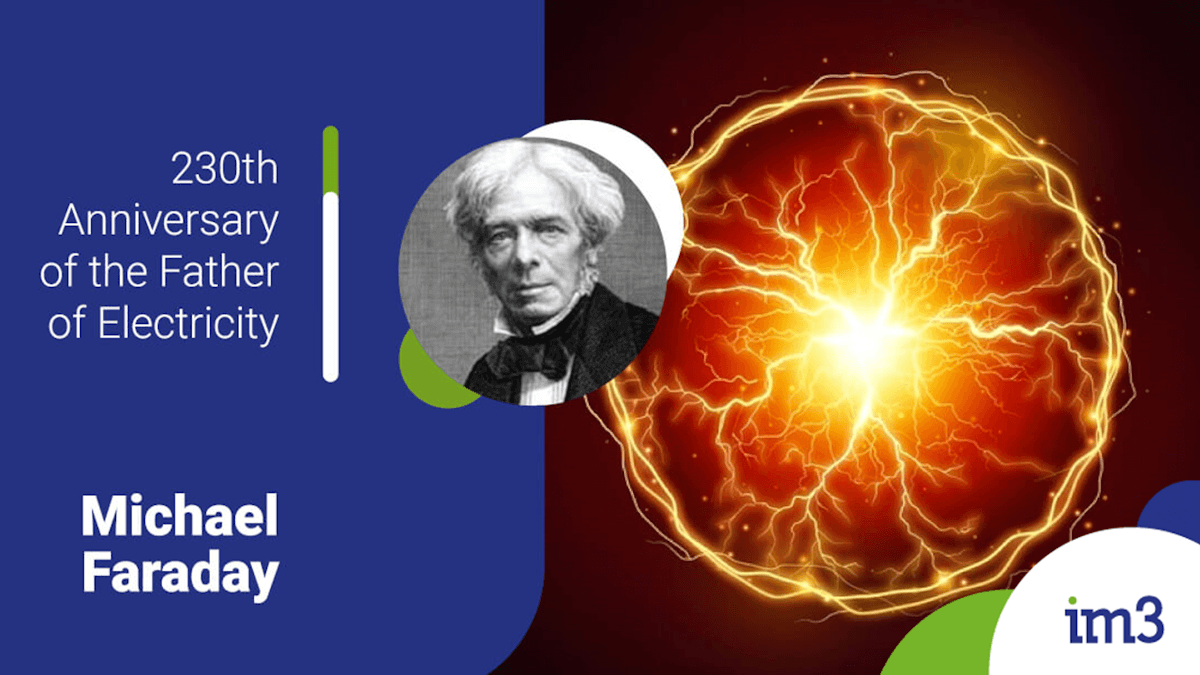
22 Sep 230th Anniversary of the Father of Electricity
22/09/2021
Albert Einstein kept three portraits on his study wall, one of Arthur Schopenhauer, the second one of James Clerk Maxwell, and there was a third one.
Michael Faraday was born 230 years ago, he was from a humble family and had only the most basic school education, but this didn’t stop him from becoming a great scientific discoverer: the Father of Electricity.
The demonstrations of Faraday in the period 1821-1832 established that a changing magnetic field produces an electric field; this relation was later modelled mathematically by James Clerk Maxwell as Faraday’s law, which subsequently became one of the four Maxwell equations, and which have in turn evolved into the generalization known today as field theory.
Faraday would later use the principles he had discovered to construct the electric dynamo, the ancestor of modern power generators and the electric motor.
Near the end of his career, Faraday proposed that electromagnetic forces extended into the empty space around the conductor. This idea was rejected by his fellow scientists, and Faraday did not live to see the eventual acceptance of his proposition by the scientific community.
Faraday’s concept of lines of flux emanating from charged bodies and magnets provided a way to visualize electric and magnetic fields; that conceptual model was crucial for the successful development of the electromechanical devices that dominated engineering and industry for the remainder of the 19th century.
At the end of his career, Faraday started to think that light itself is just one form of vibrating lines of electromagnetism, or said in other words, that light is an electromagnetic wave.
Later, Maxwell demonstrated that electromagnetism travels at the speed of light, proving Faraday right.
Maxwell and Faraday became close friends. And they were also close in another place. Yes, the third picture on Einstein’s wall, next to Maxwell’s, was of Michael Faraday, the Father of Electricity, the great uneducated scientific discoverer.
To know more about Faraday and its contribution to science, see the video Einstein’s Big Idea on YouTube.

